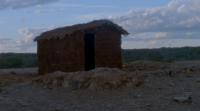 Nurturing faith and congregating the faithful into groups of followers, all sorts of leaders emerged in the Sertão, often transmuting themselves in the process: from counselors to preachers, from priests to messiahs, from blessed to saints, all combinations were possible. When congregations took on contestations in political dimensions, they quickly came to be seen as a threat to the established order. For the authorities and representatives of official Catholicism, the religious leader then became an impostor, revolutionary, or bandit. The police or the army oversaw reducing the rebels - leader, and followers.
Nurturing faith and congregating the faithful into groups of followers, all sorts of leaders emerged in the Sertão, often transmuting themselves in the process: from counselors to preachers, from priests to messiahs, from blessed to saints, all combinations were possible. When congregations took on contestations in political dimensions, they quickly came to be seen as a threat to the established order. For the authorities and representatives of official Catholicism, the religious leader then became an impostor, revolutionary, or bandit. The police or the army oversaw reducing the rebels - leader, and followers.
21.03.2023 | by Anabela Roque
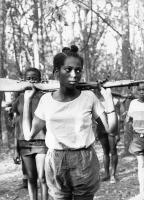 No history of decolonization or of decolonizing praxes is ever completed without attention to gender. How did women view the liberation struggles in the former Portuguese colonies? How were their ways of seeing integrated or not in the imagination of colonialism? Was there a specific gaze to women over the liberation struggles? What knowledge and awareness do we have of/about these ways of seeing? And how do these ways of seeing intersect with those of contemporary filmmakers, artists, curators and academics who are now questioning public and private archives, are visually recreating their memories or re-imagining colonialism? What role academic research, archive conservation policies, programming and curatorship have in questioning or prolonging (official) “politics of memory”?
No history of decolonization or of decolonizing praxes is ever completed without attention to gender. How did women view the liberation struggles in the former Portuguese colonies? How were their ways of seeing integrated or not in the imagination of colonialism? Was there a specific gaze to women over the liberation struggles? What knowledge and awareness do we have of/about these ways of seeing? And how do these ways of seeing intersect with those of contemporary filmmakers, artists, curators and academics who are now questioning public and private archives, are visually recreating their memories or re-imagining colonialism? What role academic research, archive conservation policies, programming and curatorship have in questioning or prolonging (official) “politics of memory”?
22.05.2021 | by Ana Cristina Pereira (AKA Kitty Furtado), Inês Beleza Barreiros and Maria do Carmo Piçarra
 Lovers rock helped to change perceptions of black music in the British media. Despite its transnational origin, it is considered a distinctly British genre, the first post-colonial music genre to emerge in the UK, before other internationally known genres such as Brit Funk, Acid House, Jungle, UK garage, Dubstep, Grime, or UK drill came about.
Lovers rock helped to change perceptions of black music in the British media. Despite its transnational origin, it is considered a distinctly British genre, the first post-colonial music genre to emerge in the UK, before other internationally known genres such as Brit Funk, Acid House, Jungle, UK garage, Dubstep, Grime, or UK drill came about.
07.02.2021 | by Marcos Cardão
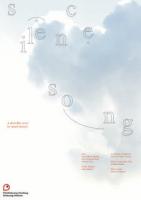 A film is often supposed to be a means of communication, and following this principle, it seems interesting to gather different understandings in order to broaden one’s own vision, and that is precisely what the freedom of an experimental visual production can offer. This act of collecting is all the more interesting as it clusters understandings coming from viewers of different cultures. It is in this sense that the director, who has studied oriental languages - notably Persian - and has a great interest in Japanese culture, fosters the creation of multi-centricities, in this case a German-Nippon-Persian-tricentrism, into which viewers can immerse themselves and come out more enriched.
A film is often supposed to be a means of communication, and following this principle, it seems interesting to gather different understandings in order to broaden one’s own vision, and that is precisely what the freedom of an experimental visual production can offer. This act of collecting is all the more interesting as it clusters understandings coming from viewers of different cultures. It is in this sense that the director, who has studied oriental languages - notably Persian - and has a great interest in Japanese culture, fosters the creation of multi-centricities, in this case a German-Nippon-Persian-tricentrism, into which viewers can immerse themselves and come out more enriched.
28.01.2021 | by Cheong Kin Man and Mathilde Denison
 Angolans have made themselves in- and outside Angola, in conversation with the world. In the departures and arrivals, they carry with them the intangible and immaterial: intuition, faith, dance, and the sad and deep look of permanent uncertainty. But they also take with them the smile of resistance that can hide sadness and misfortunes. Perhaps at arrivals and departures there isn’t much to say. Perhaps all that is needed is to listen in silence and with a hug. A hug that knows how to listen.
Angolans have made themselves in- and outside Angola, in conversation with the world. In the departures and arrivals, they carry with them the intangible and immaterial: intuition, faith, dance, and the sad and deep look of permanent uncertainty. But they also take with them the smile of resistance that can hide sadness and misfortunes. Perhaps at arrivals and departures there isn’t much to say. Perhaps all that is needed is to listen in silence and with a hug. A hug that knows how to listen.
21.12.2020 | by André Castro Soares
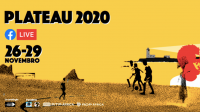 In the jury, we decided to use this year's excellent crop of films to award not only the awards traditionally bestowed by the festival but also a handful of special prizes and honourable mentions. For this, we offered the following official rationale, both on why we attributed the extra bling, but also on why we enthusiastically applauded this year's programming choices.
In the jury, we decided to use this year's excellent crop of films to award not only the awards traditionally bestowed by the festival but also a handful of special prizes and honourable mentions. For this, we offered the following official rationale, both on why we attributed the extra bling, but also on why we enthusiastically applauded this year's programming choices.
01.12.2020 | by P.J. Marcellino
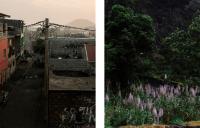 If images are powerful for identifying and revolutionising through the multiple interpretations they introduce into human feelings, then words identify through questioning, as they are connected to an idea of language as domination and authority – in other words, only those with social and political legitimacy write and speak.
If images are powerful for identifying and revolutionising through the multiple interpretations they introduce into human feelings, then words identify through questioning, as they are connected to an idea of language as domination and authority – in other words, only those with social and political legitimacy write and speak.
15.11.2020 | by Marta Lança and Welket Bungué
 To celebrate the 45th anniversary of Angola's Independence, the ATD and GERAÇÃO 80 in collaboration with TPA, Mostra de Cinemas Africanos and PlatinaLine will be shown documentaries of the project "Angola - Nos Trilhos da Independência”, “Independence”, “Women of Arms”, “São Nicolau - They Haven't Forgotten” and “The Persistent Fragility of Memory”.
To celebrate the 45th anniversary of Angola's Independence, the ATD and GERAÇÃO 80 in collaboration with TPA, Mostra de Cinemas Africanos and PlatinaLine will be shown documentaries of the project "Angola - Nos Trilhos da Independência”, “Independence”, “Women of Arms”, “São Nicolau - They Haven't Forgotten” and “The Persistent Fragility of Memory”.
11.11.2020 | by Geração 80
 For Romero, this is one of the points of art: to help us face up to our own part in slavery and its legacy, and a powerful way to reveal, and explore, our past. “With this story, we wanted to tell the British angle – this is British history,” says Romero of The Whip. “We’re in constant dialogue with our past: we have to be.”
For Romero, this is one of the points of art: to help us face up to our own part in slavery and its legacy, and a powerful way to reveal, and explore, our past. “With this story, we wanted to tell the British angle – this is British history,” says Romero of The Whip. “We’re in constant dialogue with our past: we have to be.”
22.10.2020 | by Holly Williams
 “If it hadn’t been for World War II, African countries wouldn’t have been able to liberate themselves from colonial empires”. This observation, made by Mamadou Diouf – a Senegal-born Pole, activist and legend of the Warsaw music scene, during a debate organized in June 2019 as part of the 30th Malta Festival in Poznań seems to be a provocation rather than an objective statement of facts. The average Pole is unable to imagine that this cruel conflict, which began in Poland, could bring anything positive for humanity. In a country so profoundly affected by this war, Diouf’s statement is surprising, almost shocking.
“If it hadn’t been for World War II, African countries wouldn’t have been able to liberate themselves from colonial empires”. This observation, made by Mamadou Diouf – a Senegal-born Pole, activist and legend of the Warsaw music scene, during a debate organized in June 2019 as part of the 30th Malta Festival in Poznań seems to be a provocation rather than an objective statement of facts. The average Pole is unable to imagine that this cruel conflict, which began in Poland, could bring anything positive for humanity. In a country so profoundly affected by this war, Diouf’s statement is surprising, almost shocking.
20.10.2020 | by Katarzyna Cytlak
 The gaze and its processes of rotation and retroactivity are central to the philosophical and epistemological reflection of the 20th and early 21st centuries. From Merleau Ponty’s phenomenology of perception to Viveiros de Castro’s Amerindian perspectivism, passing by Sartre’s phenomenological descriptions, the thinking of the perceptive and cognitive models is combined with a reflection on the relationships between the subject/observer and the object/observed. The possibility arises of overcoming the conventional binary framework of the modern hegemonic visual and epistemological formations.
The gaze and its processes of rotation and retroactivity are central to the philosophical and epistemological reflection of the 20th and early 21st centuries. From Merleau Ponty’s phenomenology of perception to Viveiros de Castro’s Amerindian perspectivism, passing by Sartre’s phenomenological descriptions, the thinking of the perceptive and cognitive models is combined with a reflection on the relationships between the subject/observer and the object/observed. The possibility arises of overcoming the conventional binary framework of the modern hegemonic visual and epistemological formations.
30.09.2020 | by Raquel Schefer
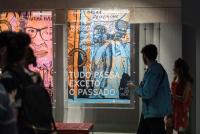 Funes’ condition contrasts with [Everything passes except the past], an international workshop about the politics of memory, promoted by the Goethe-Institut, which took place over a few days of September at Culturgest in Lisbon, in tandem with the cinema programme, Re imagining the post-colonial archive. Unlike Funes' condition this event was about reflecting on the relationship between remembering and forgetting the past.
Funes’ condition contrasts with [Everything passes except the past], an international workshop about the politics of memory, promoted by the Goethe-Institut, which took place over a few days of September at Culturgest in Lisbon, in tandem with the cinema programme, Re imagining the post-colonial archive. Unlike Funes' condition this event was about reflecting on the relationship between remembering and forgetting the past.
18.02.2020 | by Inês Ponte
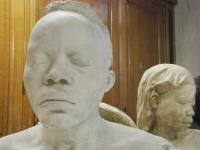 One of the other ways in which you see coloniality reemerge, is precisely in the mission the museum ascribes itself. "Africa" is an object of study while the idea of representativeness and the desire to be a window on a continent are the basic epistemological principles of imperialist logic. The scenography continues the "chosification" and "domestication"
One of the other ways in which you see coloniality reemerge, is precisely in the mission the museum ascribes itself. "Africa" is an object of study while the idea of representativeness and the desire to be a window on a continent are the basic epistemological principles of imperialist logic. The scenography continues the "chosification" and "domestication"
23.10.2019 | by Marta Lança
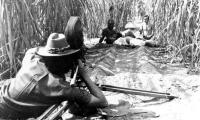 What we are looking for is a critical conscience for representations that are calcified or absent from the archives, building a debate about the modes of reimagination and ethical approaches – not only to those images that become archive-image but also to the image archives in their materiality.
What we are looking for is a critical conscience for representations that are calcified or absent from the archives, building a debate about the modes of reimagination and ethical approaches – not only to those images that become archive-image but also to the image archives in their materiality.
18.09.2019 | by Maria do Carmo Piçarra
 What remains of the Hotel Império, beyond an Asian allegory of Portugal? The clustered ruins of a building evoke the memory of an ancient, faded splendour which survives only in residues. But it is more an aesthetic image than a documented, known fact. Haunted ghosts survive of a house, more imagined than real, that never fully belonged in a Macau now disputing its precarious future through an iniquitous debate with a crushing and soulless modernization. The ideal conditions, then, to open up space for a pungent and inexorable nostalgia. It is destined to be the only thing to remain.
What remains of the Hotel Império, beyond an Asian allegory of Portugal? The clustered ruins of a building evoke the memory of an ancient, faded splendour which survives only in residues. But it is more an aesthetic image than a documented, known fact. Haunted ghosts survive of a house, more imagined than real, that never fully belonged in a Macau now disputing its precarious future through an iniquitous debate with a crushing and soulless modernization. The ideal conditions, then, to open up space for a pungent and inexorable nostalgia. It is destined to be the only thing to remain.
09.07.2019 | by Roberto Vecchi
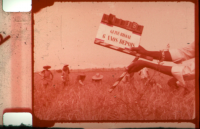 This article reads Amílcar Cabral’s much under-studied early soil science as a body of work not dissociable from his project of liberation struggle against Portuguese colonialism in Guinea-Bissau and Cape Verde. Drawing on research situated within an artistic practice, the article explores the definitions of soil and erosion that Cabral developed as an agronomist, as well as his reports on colonial land exploitation and analysis of the trade economy, to unearth his double agency as a state soil scientist and as a ‘seeder’ of African liberation.
This article reads Amílcar Cabral’s much under-studied early soil science as a body of work not dissociable from his project of liberation struggle against Portuguese colonialism in Guinea-Bissau and Cape Verde. Drawing on research situated within an artistic practice, the article explores the definitions of soil and erosion that Cabral developed as an agronomist, as well as his reports on colonial land exploitation and analysis of the trade economy, to unearth his double agency as a state soil scientist and as a ‘seeder’ of African liberation.
28.02.2019 | by Filipa César
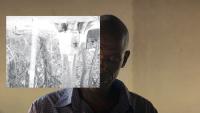 The book condenses some important aspects of the project. Its authors are not made explicit, pointing to the collaborative nature of this effort of rescue and rereading. But it also ends up suggesting that this living process of documenting complicates the very notion of authorship as a sovereign gesture with the authority to determine how images are exposed (or concealed), or to guide interpretation and impose meaning.
The book condenses some important aspects of the project. Its authors are not made explicit, pointing to the collaborative nature of this effort of rescue and rereading. But it also ends up suggesting that this living process of documenting complicates the very notion of authorship as a sovereign gesture with the authority to determine how images are exposed (or concealed), or to guide interpretation and impose meaning.
12.02.2019 | by Miguel Cardina
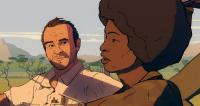 Em Mais um Dia de Vida, encontramos uma estética hollywoodesca, de construção e celebração do herói Kapuscinski. Terá a mais valia de dar a conhecer a outros públicos (em particular ao mais jovem, pelo estilo de filme de ação) o xadrez político regional e internacional que se jogava em Angola. Porém, ao centrar a narrativa de forma tão redutora na figura do ‘herói jornalista’, o filme não responde à evocação de Carlota, ficando suspenso num jogo dúbio de uso (e abuso) da memória e do esquecimento.
Em Mais um Dia de Vida, encontramos uma estética hollywoodesca, de construção e celebração do herói Kapuscinski. Terá a mais valia de dar a conhecer a outros públicos (em particular ao mais jovem, pelo estilo de filme de ação) o xadrez político regional e internacional que se jogava em Angola. Porém, ao centrar a narrativa de forma tão redutora na figura do ‘herói jornalista’, o filme não responde à evocação de Carlota, ficando suspenso num jogo dúbio de uso (e abuso) da memória e do esquecimento.
21.01.2019 | by Hélia Santos
 “Palimpsest of the Africa museum” documents the moving of the Africa museum as an esthetic mourning process, shows the insanity of the alterations and reveals through the eyes of the Belgian African Diapsora what the renovation really puts at stake: the decolonization of the Self.
“Palimpsest of the Africa museum” documents the moving of the Africa museum as an esthetic mourning process, shows the insanity of the alterations and reveals through the eyes of the Belgian African Diapsora what the renovation really puts at stake: the decolonization of the Self.
11.01.2019 | by Matthias De Groof
 We would like to invite you on a journey. Not to cross the ocean but to plumb its surface. Forget the solid and luminous history of continents and their lighthouses that tear into the night with dazzling certitudes. Enter instead into the soft shadow of the depths, on the other side of the opaque mirror of water, into an endlessly changing landscape that ignores the old borders and bodily limits. Liquid movement of subversion, waves of voices as well as radio waves, telepathy. Space is the place. This is the place for no monuments other than the bones of those thrown overboard. Migrants whose only compass is despair, pregnant slave women who fertilize the ocean depths.
We would like to invite you on a journey. Not to cross the ocean but to plumb its surface. Forget the solid and luminous history of continents and their lighthouses that tear into the night with dazzling certitudes. Enter instead into the soft shadow of the depths, on the other side of the opaque mirror of water, into an endlessly changing landscape that ignores the old borders and bodily limits. Liquid movement of subversion, waves of voices as well as radio waves, telepathy. Space is the place. This is the place for no monuments other than the bones of those thrown overboard. Migrants whose only compass is despair, pregnant slave women who fertilize the ocean depths.
20.08.2017 | by vários
 Nurturing faith and congregating the faithful into groups of followers, all sorts of leaders emerged in the Sertão, often transmuting themselves in the process: from counselors to preachers, from priests to messiahs, from blessed to saints, all combinations were possible. When congregations took on contestations in political dimensions, they quickly came to be seen as a threat to the established order. For the authorities and representatives of official Catholicism, the religious leader then became an impostor, revolutionary, or bandit. The police or the army oversaw reducing the rebels - leader, and followers.
Nurturing faith and congregating the faithful into groups of followers, all sorts of leaders emerged in the Sertão, often transmuting themselves in the process: from counselors to preachers, from priests to messiahs, from blessed to saints, all combinations were possible. When congregations took on contestations in political dimensions, they quickly came to be seen as a threat to the established order. For the authorities and representatives of official Catholicism, the religious leader then became an impostor, revolutionary, or bandit. The police or the army oversaw reducing the rebels - leader, and followers.  No history of decolonization or of decolonizing praxes is ever completed without attention to gender. How did women view the liberation struggles in the former Portuguese colonies? How were their ways of seeing integrated or not in the imagination of colonialism? Was there a specific gaze to women over the liberation struggles? What knowledge and awareness do we have of/about these ways of seeing? And how do these ways of seeing intersect with those of contemporary filmmakers, artists, curators and academics who are now questioning public and private archives, are visually recreating their memories or re-imagining colonialism? What role academic research, archive conservation policies, programming and curatorship have in questioning or prolonging (official) “politics of memory”?
No history of decolonization or of decolonizing praxes is ever completed without attention to gender. How did women view the liberation struggles in the former Portuguese colonies? How were their ways of seeing integrated or not in the imagination of colonialism? Was there a specific gaze to women over the liberation struggles? What knowledge and awareness do we have of/about these ways of seeing? And how do these ways of seeing intersect with those of contemporary filmmakers, artists, curators and academics who are now questioning public and private archives, are visually recreating their memories or re-imagining colonialism? What role academic research, archive conservation policies, programming and curatorship have in questioning or prolonging (official) “politics of memory”?  Lovers rock helped to change perceptions of black music in the British media. Despite its transnational origin, it is considered a distinctly British genre, the first post-colonial music genre to emerge in the UK, before other internationally known genres such as Brit Funk, Acid House, Jungle, UK garage, Dubstep, Grime, or UK drill came about.
Lovers rock helped to change perceptions of black music in the British media. Despite its transnational origin, it is considered a distinctly British genre, the first post-colonial music genre to emerge in the UK, before other internationally known genres such as Brit Funk, Acid House, Jungle, UK garage, Dubstep, Grime, or UK drill came about.  A film is often supposed to be a means of communication, and following this principle, it seems interesting to gather different understandings in order to broaden one’s own vision, and that is precisely what the freedom of an experimental visual production can offer. This act of collecting is all the more interesting as it clusters understandings coming from viewers of different cultures. It is in this sense that the director, who has studied oriental languages - notably Persian - and has a great interest in Japanese culture, fosters the creation of multi-centricities, in this case a German-Nippon-Persian-tricentrism, into which viewers can immerse themselves and come out more enriched.
A film is often supposed to be a means of communication, and following this principle, it seems interesting to gather different understandings in order to broaden one’s own vision, and that is precisely what the freedom of an experimental visual production can offer. This act of collecting is all the more interesting as it clusters understandings coming from viewers of different cultures. It is in this sense that the director, who has studied oriental languages - notably Persian - and has a great interest in Japanese culture, fosters the creation of multi-centricities, in this case a German-Nippon-Persian-tricentrism, into which viewers can immerse themselves and come out more enriched.  Angolans have made themselves in- and outside Angola, in conversation with the world. In the departures and arrivals, they carry with them the intangible and immaterial: intuition, faith, dance, and the sad and deep look of permanent uncertainty. But they also take with them the smile of resistance that can hide sadness and misfortunes. Perhaps at arrivals and departures there isn’t much to say. Perhaps all that is needed is to listen in silence and with a hug. A hug that knows how to listen.
Angolans have made themselves in- and outside Angola, in conversation with the world. In the departures and arrivals, they carry with them the intangible and immaterial: intuition, faith, dance, and the sad and deep look of permanent uncertainty. But they also take with them the smile of resistance that can hide sadness and misfortunes. Perhaps at arrivals and departures there isn’t much to say. Perhaps all that is needed is to listen in silence and with a hug. A hug that knows how to listen.  In the jury, we decided to use this year's excellent crop of films to award not only the awards traditionally bestowed by the festival but also a handful of special prizes and honourable mentions. For this, we offered the following official rationale, both on why we attributed the extra bling, but also on why we enthusiastically applauded this year's programming choices.
In the jury, we decided to use this year's excellent crop of films to award not only the awards traditionally bestowed by the festival but also a handful of special prizes and honourable mentions. For this, we offered the following official rationale, both on why we attributed the extra bling, but also on why we enthusiastically applauded this year's programming choices.  If images are powerful for identifying and revolutionising through the multiple interpretations they introduce into human feelings, then words identify through questioning, as they are connected to an idea of language as domination and authority – in other words, only those with social and political legitimacy write and speak.
If images are powerful for identifying and revolutionising through the multiple interpretations they introduce into human feelings, then words identify through questioning, as they are connected to an idea of language as domination and authority – in other words, only those with social and political legitimacy write and speak.  To celebrate the 45th anniversary of Angola's Independence, the ATD and GERAÇÃO 80 in collaboration with TPA, Mostra de Cinemas Africanos and PlatinaLine will be shown documentaries of the project "Angola - Nos Trilhos da Independência”, “Independence”, “Women of Arms”, “São Nicolau - They Haven't Forgotten” and “The Persistent Fragility of Memory”.
To celebrate the 45th anniversary of Angola's Independence, the ATD and GERAÇÃO 80 in collaboration with TPA, Mostra de Cinemas Africanos and PlatinaLine will be shown documentaries of the project "Angola - Nos Trilhos da Independência”, “Independence”, “Women of Arms”, “São Nicolau - They Haven't Forgotten” and “The Persistent Fragility of Memory”.  For Romero, this is one of the points of art: to help us face up to our own part in slavery and its legacy, and a powerful way to reveal, and explore, our past. “With this story, we wanted to tell the British angle – this is British history,” says Romero of The Whip. “We’re in constant dialogue with our past: we have to be.”
For Romero, this is one of the points of art: to help us face up to our own part in slavery and its legacy, and a powerful way to reveal, and explore, our past. “With this story, we wanted to tell the British angle – this is British history,” says Romero of The Whip. “We’re in constant dialogue with our past: we have to be.”  “If it hadn’t been for World War II, African countries wouldn’t have been able to liberate themselves from colonial empires”. This observation, made by Mamadou Diouf – a Senegal-born Pole, activist and legend of the Warsaw music scene, during a debate organized in June 2019 as part of the 30th Malta Festival in Poznań seems to be a provocation rather than an objective statement of facts. The average Pole is unable to imagine that this cruel conflict, which began in Poland, could bring anything positive for humanity. In a country so profoundly affected by this war, Diouf’s statement is surprising, almost shocking.
“If it hadn’t been for World War II, African countries wouldn’t have been able to liberate themselves from colonial empires”. This observation, made by Mamadou Diouf – a Senegal-born Pole, activist and legend of the Warsaw music scene, during a debate organized in June 2019 as part of the 30th Malta Festival in Poznań seems to be a provocation rather than an objective statement of facts. The average Pole is unable to imagine that this cruel conflict, which began in Poland, could bring anything positive for humanity. In a country so profoundly affected by this war, Diouf’s statement is surprising, almost shocking.  The gaze and its processes of rotation and retroactivity are central to the philosophical and epistemological reflection of the 20th and early 21st centuries. From Merleau Ponty’s phenomenology of perception to Viveiros de Castro’s Amerindian perspectivism, passing by Sartre’s phenomenological descriptions, the thinking of the perceptive and cognitive models is combined with a reflection on the relationships between the subject/observer and the object/observed. The possibility arises of overcoming the conventional binary framework of the modern hegemonic visual and epistemological formations.
The gaze and its processes of rotation and retroactivity are central to the philosophical and epistemological reflection of the 20th and early 21st centuries. From Merleau Ponty’s phenomenology of perception to Viveiros de Castro’s Amerindian perspectivism, passing by Sartre’s phenomenological descriptions, the thinking of the perceptive and cognitive models is combined with a reflection on the relationships between the subject/observer and the object/observed. The possibility arises of overcoming the conventional binary framework of the modern hegemonic visual and epistemological formations.  Funes’ condition contrasts with [Everything passes except the past], an international workshop about the politics of memory, promoted by the Goethe-Institut, which took place over a few days of September at Culturgest in Lisbon, in tandem with the cinema programme, Re imagining the post-colonial archive. Unlike Funes' condition this event was about reflecting on the relationship between remembering and forgetting the past.
Funes’ condition contrasts with [Everything passes except the past], an international workshop about the politics of memory, promoted by the Goethe-Institut, which took place over a few days of September at Culturgest in Lisbon, in tandem with the cinema programme, Re imagining the post-colonial archive. Unlike Funes' condition this event was about reflecting on the relationship between remembering and forgetting the past.  One of the other ways in which you see coloniality reemerge, is precisely in the mission the museum ascribes itself. "Africa" is an object of study while the idea of representativeness and the desire to be a window on a continent are the basic epistemological principles of imperialist logic. The scenography continues the "chosification" and "domestication"
One of the other ways in which you see coloniality reemerge, is precisely in the mission the museum ascribes itself. "Africa" is an object of study while the idea of representativeness and the desire to be a window on a continent are the basic epistemological principles of imperialist logic. The scenography continues the "chosification" and "domestication"  What we are looking for is a critical conscience for representations that are calcified or absent from the archives, building a debate about the modes of reimagination and ethical approaches – not only to those images that become archive-image but also to the image archives in their materiality.
What we are looking for is a critical conscience for representations that are calcified or absent from the archives, building a debate about the modes of reimagination and ethical approaches – not only to those images that become archive-image but also to the image archives in their materiality.  What remains of the Hotel Império, beyond an Asian allegory of Portugal? The clustered ruins of a building evoke the memory of an ancient, faded splendour which survives only in residues. But it is more an aesthetic image than a documented, known fact. Haunted ghosts survive of a house, more imagined than real, that never fully belonged in a Macau now disputing its precarious future through an iniquitous debate with a crushing and soulless modernization. The ideal conditions, then, to open up space for a pungent and inexorable nostalgia. It is destined to be the only thing to remain.
What remains of the Hotel Império, beyond an Asian allegory of Portugal? The clustered ruins of a building evoke the memory of an ancient, faded splendour which survives only in residues. But it is more an aesthetic image than a documented, known fact. Haunted ghosts survive of a house, more imagined than real, that never fully belonged in a Macau now disputing its precarious future through an iniquitous debate with a crushing and soulless modernization. The ideal conditions, then, to open up space for a pungent and inexorable nostalgia. It is destined to be the only thing to remain.  This article reads Amílcar Cabral’s much under-studied early soil science as a body of work not dissociable from his project of liberation struggle against Portuguese colonialism in Guinea-Bissau and Cape Verde. Drawing on research situated within an artistic practice, the article explores the definitions of soil and erosion that Cabral developed as an agronomist, as well as his reports on colonial land exploitation and analysis of the trade economy, to unearth his double agency as a state soil scientist and as a ‘seeder’ of African liberation.
This article reads Amílcar Cabral’s much under-studied early soil science as a body of work not dissociable from his project of liberation struggle against Portuguese colonialism in Guinea-Bissau and Cape Verde. Drawing on research situated within an artistic practice, the article explores the definitions of soil and erosion that Cabral developed as an agronomist, as well as his reports on colonial land exploitation and analysis of the trade economy, to unearth his double agency as a state soil scientist and as a ‘seeder’ of African liberation.  The book condenses some important aspects of the project. Its authors are not made explicit, pointing to the collaborative nature of this effort of rescue and rereading. But it also ends up suggesting that this living process of documenting complicates the very notion of authorship as a sovereign gesture with the authority to determine how images are exposed (or concealed), or to guide interpretation and impose meaning.
The book condenses some important aspects of the project. Its authors are not made explicit, pointing to the collaborative nature of this effort of rescue and rereading. But it also ends up suggesting that this living process of documenting complicates the very notion of authorship as a sovereign gesture with the authority to determine how images are exposed (or concealed), or to guide interpretation and impose meaning.  Em Mais um Dia de Vida, encontramos uma estética hollywoodesca, de construção e celebração do herói Kapuscinski. Terá a mais valia de dar a conhecer a outros públicos (em particular ao mais jovem, pelo estilo de filme de ação) o xadrez político regional e internacional que se jogava em Angola. Porém, ao centrar a narrativa de forma tão redutora na figura do ‘herói jornalista’, o filme não responde à evocação de Carlota, ficando suspenso num jogo dúbio de uso (e abuso) da memória e do esquecimento.
Em Mais um Dia de Vida, encontramos uma estética hollywoodesca, de construção e celebração do herói Kapuscinski. Terá a mais valia de dar a conhecer a outros públicos (em particular ao mais jovem, pelo estilo de filme de ação) o xadrez político regional e internacional que se jogava em Angola. Porém, ao centrar a narrativa de forma tão redutora na figura do ‘herói jornalista’, o filme não responde à evocação de Carlota, ficando suspenso num jogo dúbio de uso (e abuso) da memória e do esquecimento.  “Palimpsest of the Africa museum” documents the moving of the Africa museum as an esthetic mourning process, shows the insanity of the alterations and reveals through the eyes of the Belgian African Diapsora what the renovation really puts at stake: the decolonization of the Self.
“Palimpsest of the Africa museum” documents the moving of the Africa museum as an esthetic mourning process, shows the insanity of the alterations and reveals through the eyes of the Belgian African Diapsora what the renovation really puts at stake: the decolonization of the Self.  We would like to invite you on a journey. Not to cross the ocean but to plumb its surface. Forget the solid and luminous history of continents and their lighthouses that tear into the night with dazzling certitudes. Enter instead into the soft shadow of the depths, on the other side of the opaque mirror of water, into an endlessly changing landscape that ignores the old borders and bodily limits. Liquid movement of subversion, waves of voices as well as radio waves, telepathy. Space is the place. This is the place for no monuments other than the bones of those thrown overboard. Migrants whose only compass is despair, pregnant slave women who fertilize the ocean depths.
We would like to invite you on a journey. Not to cross the ocean but to plumb its surface. Forget the solid and luminous history of continents and their lighthouses that tear into the night with dazzling certitudes. Enter instead into the soft shadow of the depths, on the other side of the opaque mirror of water, into an endlessly changing landscape that ignores the old borders and bodily limits. Liquid movement of subversion, waves of voices as well as radio waves, telepathy. Space is the place. This is the place for no monuments other than the bones of those thrown overboard. Migrants whose only compass is despair, pregnant slave women who fertilize the ocean depths. 